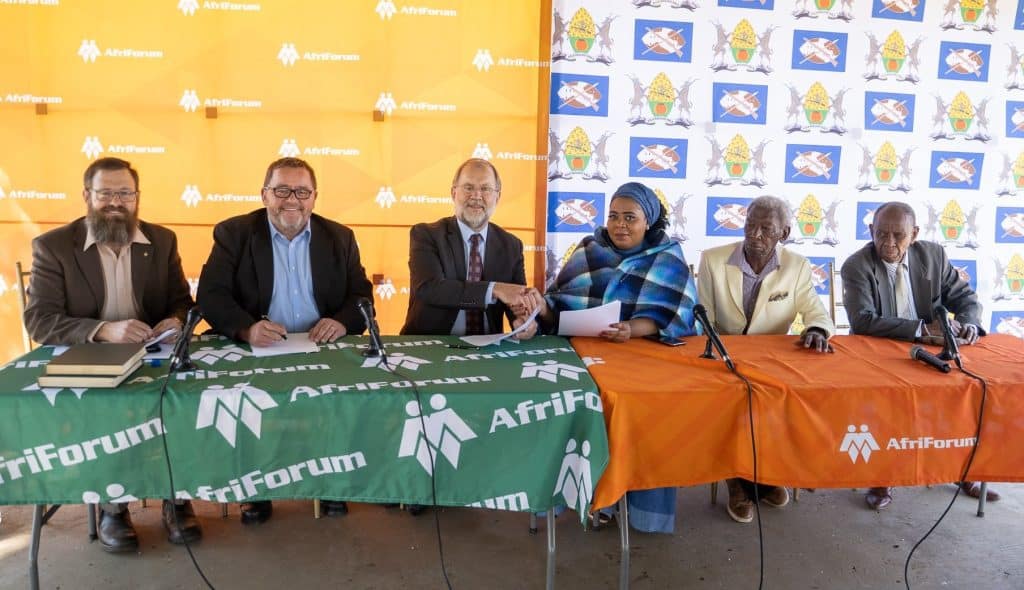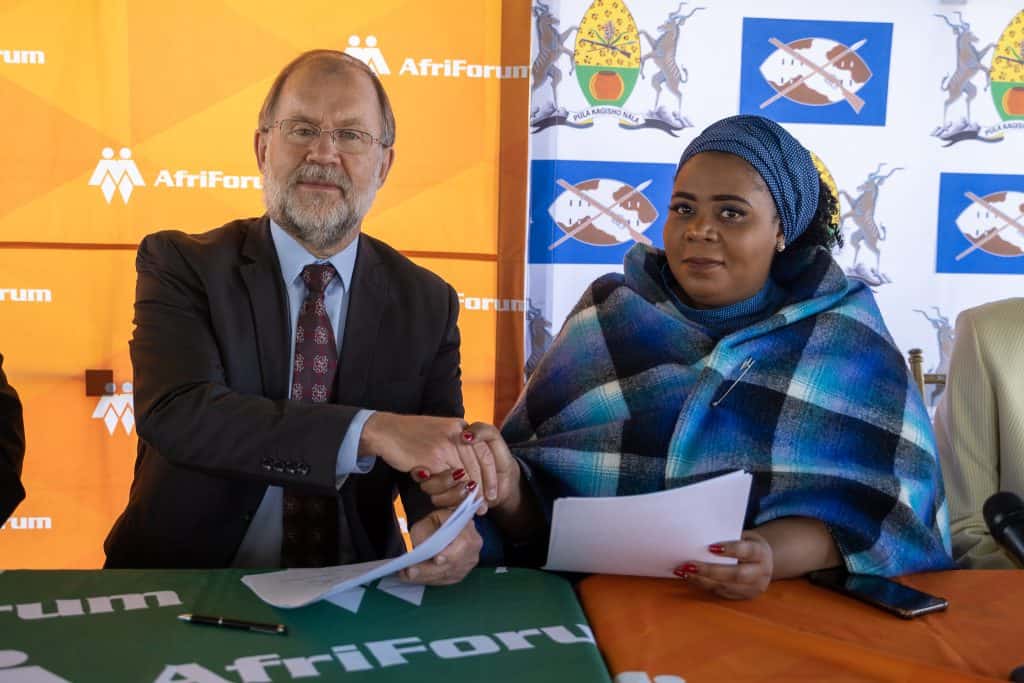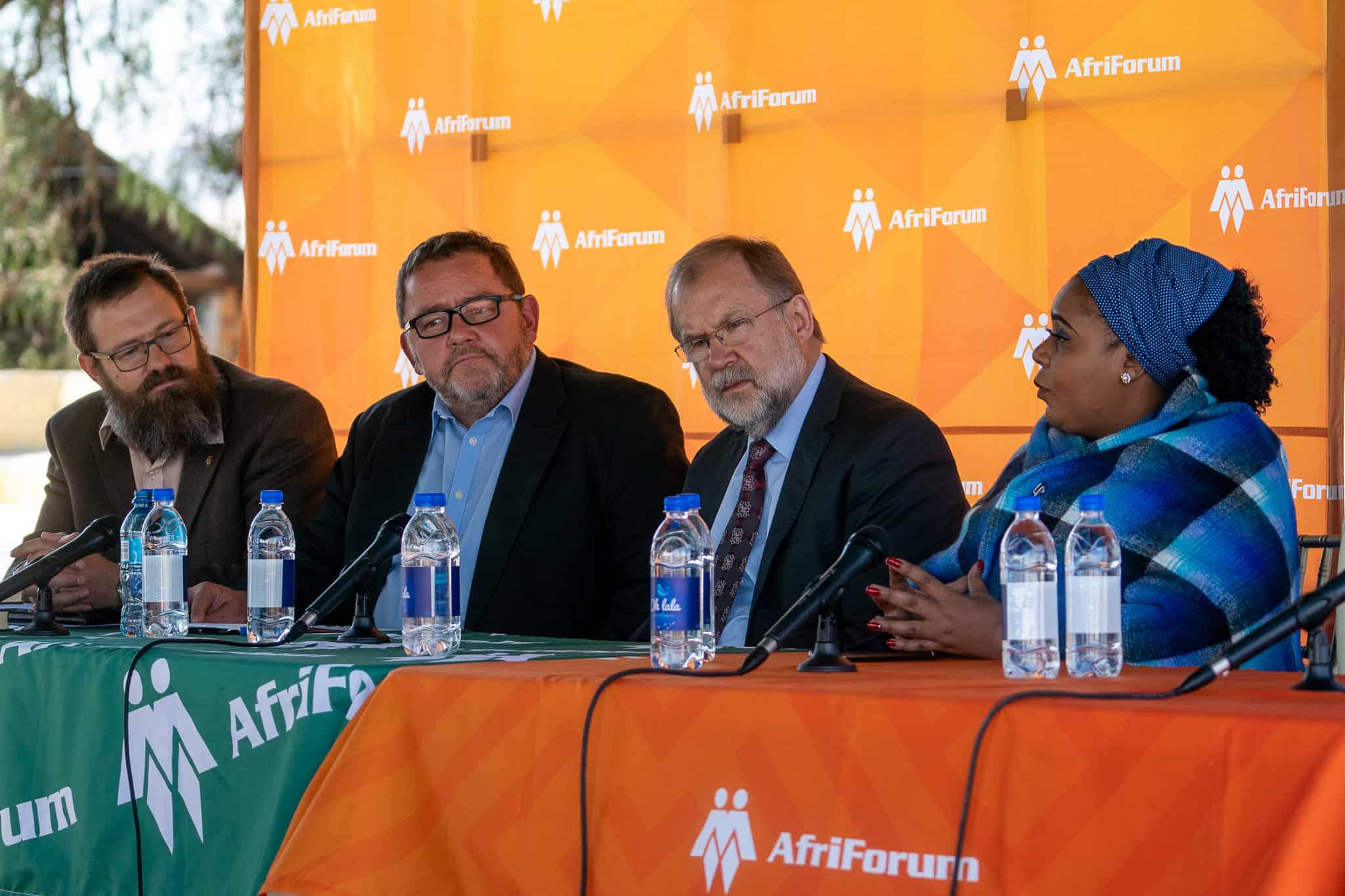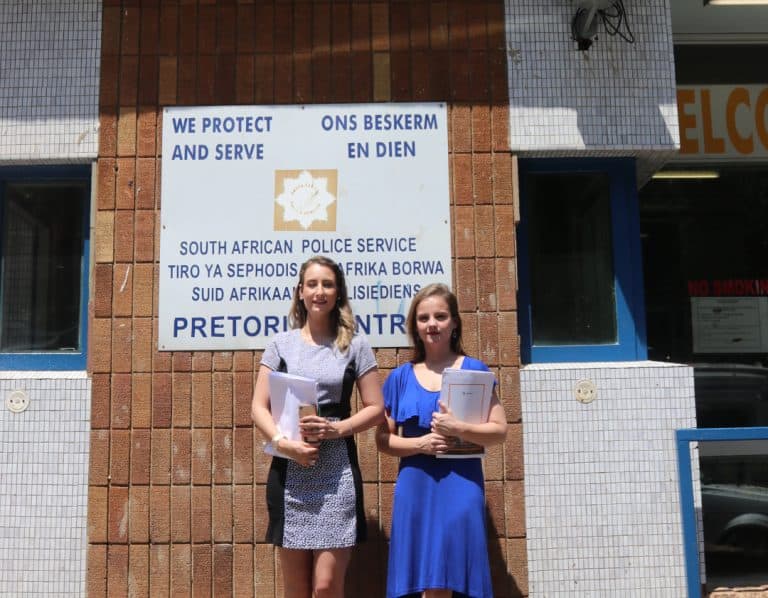AfriForum and Barolong Boo Seleka revive historic relations with recognition and cooperation treaty
AfriForum and the Barolong Boo Seleka Traditional Community today revived the historic relations between the Barolong Boo Seleka and Afrikaner cultural communities with the signing of a mutual recognition and cooperation treaty in the capital of the Barolong Boo Seleka, Thaba ’Nchu, east of Bloemfontein in the Free State Province.
This formalisation of the relations between AfriForum and the Barolong Boo Seleka follows the restoration of relations between these cultural communities over the past two and a half years through AfriForum’s support of the royal family in their legal battle for restoration and recognition and the establishment of a joint agricultural development launch project with the support of AfriForum and other network partners.
“Our ancestors, Kgosi Moroka II and Kgosi Tshipinare Moroka lead by example by establishing good relations with other cultural communities and continuously improving governance. We are honoured to walk in their footsteps and honour their legacy by reviving the good relations with the Afrikaner cultural community with the signing of this treaty. We must lead our cultural community in a reformation process that will ensure a prosperous future and the preservation of our cultural identity – partnerships and cooperation have a key role to play in realising this vision,” says Kgosi Gabo Moroka, kgosi of the Barolong Boo Seleka Traditional Community.
“South Africa as centralised dispensation is a failure in many areas – the only solution lies in community federalism. That is why we are building a network of cultural communities that cooperates based on mutual recognition and respect to ensure a free, safe, and prosperous future for the children of our cultural communities. It is a privilege for us to cooperate with Kgosi Gabo Moroka and the Barolong Boo Seleka cultural community,” says Kallie Kriel, CEO of AfriForum.
The treaty aims to establish and maintain a lasting relationship while focusing on ensuring everlasting peace and friendship between the Barolong Boo Seleka and the Afrikaner cultural communities, and to promote their economic, social and cultural development through the following:
- cooperation in agricultural development
- promotion of intercultural reconciliation and dialogue
- promotion of community self-sufficiency and self-management
- promotion of community safety
- preservation and safeguarding of cultural identity and heritage
- promotion of mother-language education
- protection of property rights
The following principles form the basis of the treaty:
- mutual recognition and respect
- peaceful co-existence
- acceptance of each other’s identity, permanency, and existence as autonomous cultural communities
- the prerogative of cultural communities to govern their own affairs and establish and maintain their own institutions without interference from the state or any other entity
- respect for the diversity of governing institutions, customs, and practices, including those relating to land use and landownership
- freedom of religion and religious and cultural practices
“We are the link between the generations that preceded us and the generations of the future – every generation has their own task and must make their own choices. It is a privilege to be part of a generation that chooses to learn from the experience of our ancestors, that chooses to build on established values and shape a future where cultural communities peacefully co-exist and cooperate on matters of mutual interest. We are striving to inspire the members of our cultural communities with hope for the future so that they choose to fulfil their calling and live free at the southern tip of Africa,” says Barend Uys, Head of Intercultural Cooperation at AfriForum.
Good relations between the Afrikaner and Barolong Boo Seleka cultural communities started in the 1830s and continued through the nineteenth century. A defining moment in this relationship was when Kgosi Moroka II came to the aid of the Voortrekkers after the Battle of Vegkop in 1836 by providing them with much-needed trek-oxen when they were in very dire straits and stranded on the battlefield after all their livestock were taken. There were also good relations and cooperation between the Barolong Boo Seleka Kingdom and the Republic of the Orange Free State during the turbulent second half of the 1800s.













